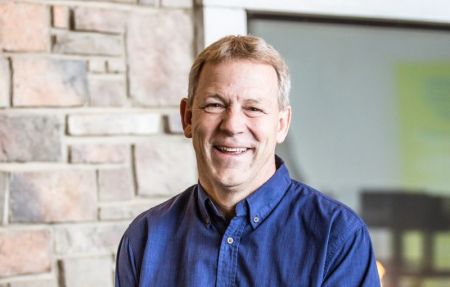In Isolated World of Pastors, Churches Mum on Troubling Clergy Suicides
Family Problems and Unrealistic Expectations
Ministry was also found to place much strain on the marriages of clergy who are expected to oftentimes meet numerous and unrealistic expectations from their congregations, the study said.
"Researchers found that almost one in three pastors leaving ordained ministry had family difficulties, and clergy rank third in percentage among professionals who are divorced," the review said.
Some 21 percent of UMC clergy studied cited poor communication as a major problem and 43 percent cited inadequate companionship.
"The most often cited areas of discord were: inadequate time with spouse, lack of affection, financial problems, not enough time with children, and sexual relations. Marital conflict was most common among young pastors and those unhappy in their work and with their financial situation," the report explained.
It was further noted that many pastors and their families are "placed on a pedestal" that makes it difficult for them to form normal friendships.
This situation often results in feelings of loneliness and isolation in clergy families that lead to the "fish bowl" effect of living in the public eye. This limited social support creates stress for many clergy families.
Stress and Sexual Misconduct
Another study of Southern Baptist senior pastors working in six southeastern states also linked stress among pastors to sexual misconduct with adult members of the church.
"They found that high levels of stress and sexual misconduct were strongly associated. Ministers with chronic stress from several sources were at the greatest risk of such misconduct. For example, clergy in the midst of a personal crisis (such as painful marriages or other emotional difficulties) are particularly vulnerable, especially if they are unable to reach out for needed counseling," the report said. "In addition, those with less confidence in their training as counselors were more likely to engage in sexual misconduct than those with more confidence in it."
The Aftermath of a Pastor Suicide
In recalling the aftermath of the suicide of his pastor friend, Barrs, who delivered his eulogy, explained how it affected him personally as well as the congregation at large.
"Well, obviously it is very, very painful. I think people, many of them (congregants), had become believers, all of them had been discipled by him and he had been their pastor and teacher for many years. He was very greatly loved. He'd been a good pastor," Barrs said.
"I think many people of course felt betrayed. ... But I will never forget the service. I think one of the essential things in such a setting is I think you encourage people to give voice to the pain that they're feeling rather than to cover it over. And I preached that day on Lamentations Chapter 3 where Jeremiah speaks very passionately and very, very bluntly and painfully about his sorrow for his people. ... Yet at the end of the passage there is hope," he said. "In my sermon I was encouraging the congregation to express their grief and also their anger. The Lord's quite capable of handling that and to be completely honest about the way they felt."
In order for a church to heal from a pastor's suicide, Barrs explained that, in his experience, people should be honest and open about how they really feel. That honesty, he said, can sometimes be expressed in unexpected ways.
He then recalled how the congregation reacted when they went to bury his friend at the graveyard.
"And then they went to the graveyard and I've never seen anything like it after," he said of the burial service he had expected to be brief.
"... [I] put the first trowel full of dirt on his coffin and some of his family who had come from other parts of the world did the same. Then the members of the congregation each started one by one putting a trowel full of dirt on the coffin and they just started singing hymns. They actually were there for, I think, what must have been three hours or so until the whole grave, at just a trowel full at a time [was full]," he said.
"They were singing the whole time. I don't think the undertakers had ever seen anything like it either. And it was just an outpouring of pain and love. And it just was extremely moving, and I think that encouraging the congregation like that to express their sorrow was very important when somebody is grieving anything rather than pretending everything is fine. That was a very important time in the healing of the congregation and they lost very few members over the next year or two," he said. "The church just carried on basically in a very straight line. There were a couple of people who left and there were some other reasons for that. Not because of their sense of anger or grief or betrayal because they were encouraged to express that."
Barrs explained that the suicide of a pastor is not something that people forget, even after 25 years.
"I still talk to people about it from time to time who were elders with him and labored alongside him. It's just a sorrow that never goes ... like losing a child. It's always still there for the rest of your life," he said.
Changing Church Culture, Remembering Pastors Are Human Too
To help break the lure of suicide as a solution for pastors, experts including Pingleton and Barrs agree that churches and seminaries must improve the way they address issues of mental health in training schools and from the pulpit. Pastors also need to develop a deeper self-awareness and learn how to create boundaries in their professional roles.

"What the research shows very clearly is at that one out of four Americans suffer from major mental illness, and one out of four pastors also suffer from a major mental illness. So that stat suggests very strongly that pastors are certainly not supermen or women but they are humans called to serve in a specific way," Pingleton said.
"They themselves also suffer from the same if not more of the same issues of their parishioners because of the high stress, the very high degree of isolation and the other unique factors endemic to professional ministry. As both a clinical psychologist as well as a third-generation minister myself. Those issues very much resonate to pastors whenever you are talking with them in a way they feel safe that they can look at their stressors and deal with their issues," he continued.
"What the research shows very clearly, even within the churches is that the best defense is a good offense. That is to talk about mental health issues," said Pingleton who recently authored The Struggle Is Real a comprehensive resource that provides churches with practical tools to care for people struggling with mental and relational health issues in a biblically sound and emotionally healthy way.
Barrs explained that in his role as a seminarian training pastors, he tries to prepare them as best as he can for the real world challenges that comes with ministry and he believes more seminaries need to make sure they are addressing issues of mental health as well.
"I spend my life teaching theology of ministry and challenging students to never give these simplistic, superficial answers to people who are hurting but to rather weep with them and listen to them and not seek to be able to fix their problems because many people have problems we can't fix," he said.
"That's where Francis Schaeffer was very helpful. Working with him for years and years, he used to say what we're trying to do isn't difficult, it's impossible. We can't save anybody ... but God can so just stop trying to give superficial answers to people's problems. Many of our churches need to learn that and some pastors need to learn it. We are trying to send pastors out who are understanding and who will be sympathetic and who have enough knowledge of their own brokenness so they don't try to heal other people's brokenness lightly," Barrs explained.
Research also shows that among other things, churches need to better screen potential candidates for ordination and emphasize the importance of self-care for existing clergy.
Last December, Bill Lenz, a Wisconsin pastor who dedicated much of his life to suicide prevention and whose ministry at Christ the Rock Community Church in Menasha was inspired by his dedication to the issue, stunned family and friends when he took his own life at 60.
In perhaps the only public comment from his family embedded in his obituary they urged those fighting depression against trying to fight it alone.
"Bill has never fallen victim to depression in the past, but has battled it with a vengeance for the last three months. He sought and accepted help, but unfortunately for all of us, it wasn't enough to give us more time with him here on earth. Our hope in Jesus Christ is the same today as it was before this nightmare began. Please, if you're struggling with depression, don't go at it alone. Seek help," they warned.





















